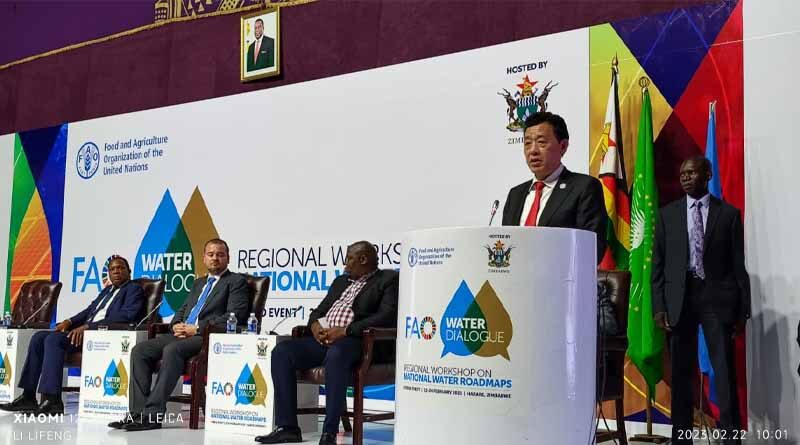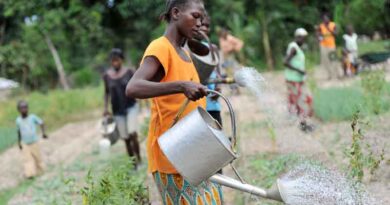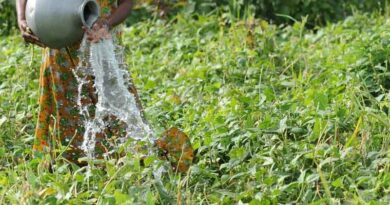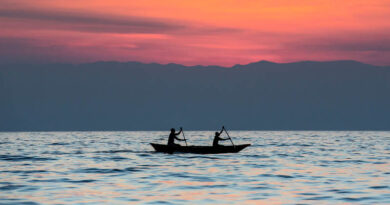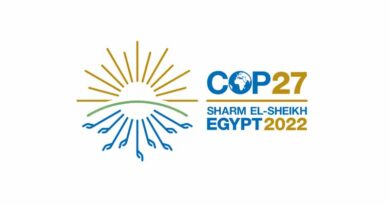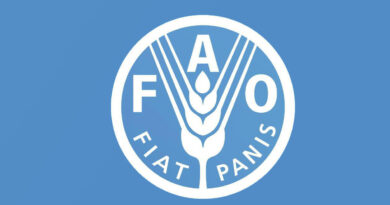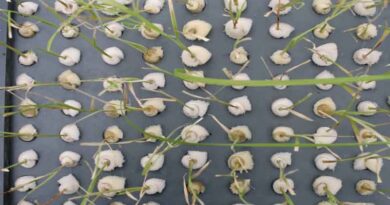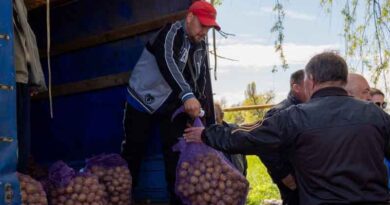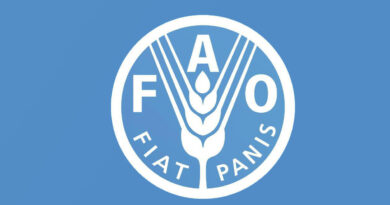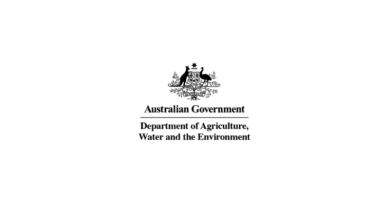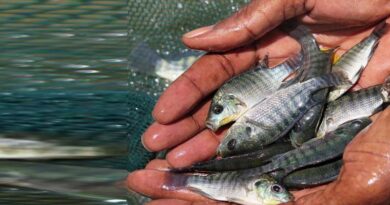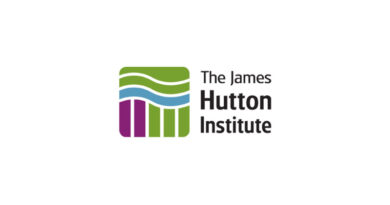African leaders meet in Zimbabwe for first FAO regional workshop on National Water Roadmaps
22 February 2023, Harare: “We clearly need to rethink how we use the water we have in a sustainable and equitable way – with innovations in agriculture being at the forefront”, the Director-General of the Food of Agriculture Organization of the United Nations (FAO), QU Dongyu, told African leaders and experts during the high-level opening of the first FAO regional workshop on National Water Roadmaps in Zimbabwe.
Qu explained that the National Water Roadmaps – strategies that will help to strengthen water resources management— are an important tool to address the growing challenges around water, helping to achieve the 2030 Agenda for Sustainable Development.
The first FAO regional workshop, held in-person in Harare and virtually, aims to inform African countries about the overall role of water in sustainable development and to provide a platform for governments, international organizations, civil society, the private sector and academia to discuss and develop country-specific water plans.
The importance of taking care of water resources
The FAO Director-General reminded participants that water is one of the world’s most precious resources and it is central to achieving all the Sustainable Development Goals.
“Because water is food, and food is water, food is life… Over 95% of the food we eat is produced on land, from soil and water”, he underscored. “Yet we are facing severe water challenges: droughts and water scarcity, floods and pollution”, he warned.
Indeed, the climate crisis is increasing the frequency and intensity of droughts and floods, which has an impact on food production.
In Africa, 289 million people— 21% of the population— still suffer from hunger or food insecurity, and more than 300 million in the continent live in areas affected by low and irregular rainfall, resulting in droughts and water scarcity.
“These extremes – of too much or too little water – impact farmers, crop production, livestock, food security, economies and livelihoods”, Qu emphasized.
The solutions
The Director-General, underlining that Agriculture is responsible for 70% of global freshwater withdrawals, told the workshop that it is crucial to increase water productivity with innovations in the sector being at the forefront.
“More crop per drop”, he explained, adding that it is also necessary to cut greenhouse emissions from agriculture through the sustainable management of soils, to prevent further disruption to the water and climate cycle.
He also invited African countries to look at “the big picture” of integrated water resources management to deal with increasing competition and trade-offs between sectors, and increasingly work in partnerships.
“Integrated water-related strategies and policies, with concrete actions and strong political will, are crucial to managing water across sectors in a holistic and efficient way”, the FAO Director-General underscored.
Africa united to develop a shared vision at the UN Water Conference
At the High-Level Opening of the FAO regional workshop, Anxious Jongwe Masuka, Minister for Lands, Agriculture, Fisheries, Water and Rural Development of Zimbabwe, in representation of the President of the Republic of Zimbabwe, Emmerson Mnangagwa, said that the meeting will provide Africa with a platform for the development of a shared vision and voice at the UN 2023 Water Conference.
“It is my hope that this collective position shall demonstrate a great deal of collegiality, a great deal of unity in our diversity and most importantly, will consider the needs and aspirations of the citizenry of Africa”, he underscored.
On 22-24 March 2023, the UN will convene the UN 2023 Water Conference at the UN Headquarters in New York to review the progress made in the UN Water Action Decade. This will provide an opportunity to keep the momentum and raise awareness of water’s role in economies, societies and the environment and to mobilize global-local actions on the water for sustainable development.
To foster collective action at the national level for the development of such roadmaps, FAO is organizing regional workshops on the National Water Roadmaps.
The high-level opening also had the participation of Edward Kallon, UN Resident Coordinator in Zimbabwe and Gilbert F. Houngbo, Chair of UN-Water and Director-General of the International Labour Organization.
During the next two days, the event will see a series of high-level roundtables, presentations and panel discussions to define actionable regional recommendations related to financing, data, innovation, and governance, among other issues linked to water management.
FAO in Africa and Water
FAO has many projects related to water management in Africa and actively collaborates with countries to develop their National Water Roadmaps.
For example, the FAO Water Productivity Open-access portal (WaPOR) provides data based on satellite remote sensing in Africa and the Near East.
Information from WaPOR helps policymakers to make informed decisions, to be better prepared for drought, and to increase agricultural production with less water use.
FAO also provides the Secretariat for the Global Framework on Water Scarcity in Agriculture (WASAG).
WASAG is a Partnership established in 2017 and hosted by FAO. It consists of 70 government agencies, international organizations, research institutions, and advocacy groups, engaged in implementing projects and formulating new ideas to address increasing water scarcity in agriculture.
The Organization also supports field projects in Africa aimed at improving the efficient use of water. These projects include, for example, the modernization of old irrigation systems and the introduction of solar-powered irrigation in Uganda and Burkina Faso, and the multiple uses of rice paddy for rice and fish production in Zambia.
Through the Pro-Sahel project, FAO supports Sahel countries (Burkina Faso and Niger) to upscale small-scale irrigation technologies for high-value crops.
Also Read: Best Agrolife launches 8 new formulations
(For Latest Agriculture News & Updates, follow Krishak Jagat on Google News)

